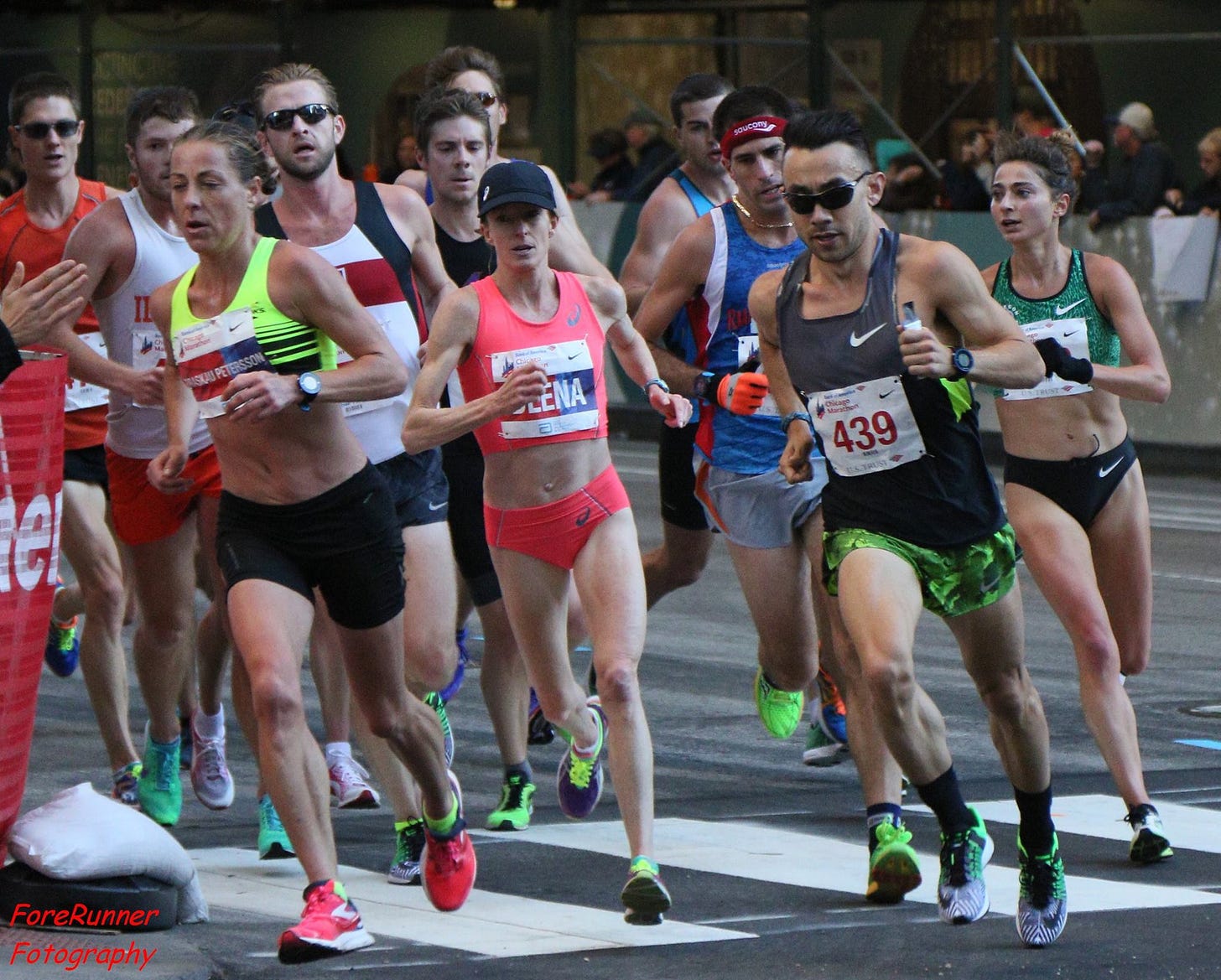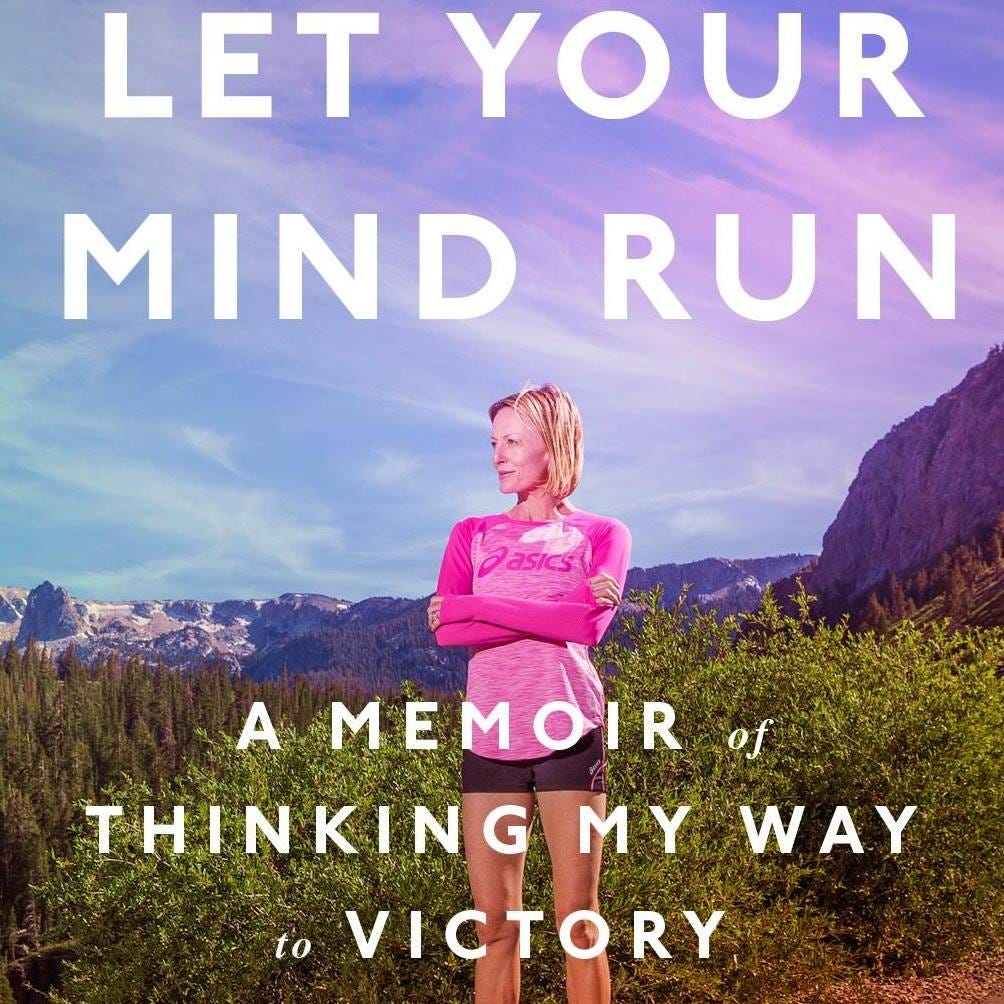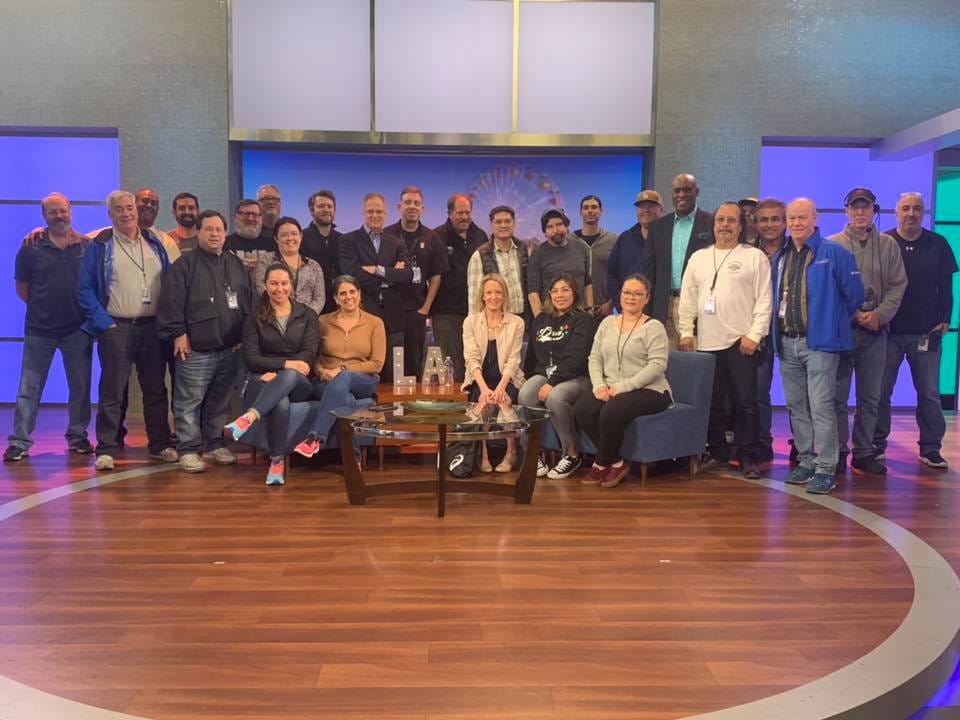Deena Kastor on Setting Intentions for the New Year
Thinking Your Way to An Intentional 2025 with Deena Kastor
Welcome to the first issue of Wings & Spikes of 2025! Rising Hearts is hosting the On Your Mark, Set Your Intentions 5K, 10K & Half Marathon. (Today happens to be the last day!) It’s a great virtual race to move with purpose, because the proceeds go to Touching Land, Black Men Run, Running Industry Diversity Coalition and Rising Hearts. I also love the theme of this virtual race, setting intentions.
Speaking of setting intentions, I can’t help but look up to Deena Kastor as the master of setting intentions. Most runners know Deena Kastor as the Olympic medalist, the former American record holder in the marathon, and an eight-time national champion in cross-country. In her book with Michelle Hamilton, Let Your Mind Run: A Memoir of Thinking My Way to Victory, Kastor details all the different ways she uses positive thinking and rephrasing to victories.
As Kastor continues her work as an ambassador with ASICS, she shares her tips on setting intentions for a meaningful 2025 with readers of Wings & Spikes.
Thinking Your Way to An Intentional 2025 with Deena Kastor
As mindfulness practice grows in popularity, it has been quietly replacing the New Year’s resolution. The new idea is that instead of setting goals such as “strength train 3x a week”, “lose 10 pounds”, or “quit alcohol”, you’re better off setting intentions like “2025 will be a year of strength”. Many people also find a daily intention-setting practice useful in guiding a productive day.
With its roots in Buddhism meditation and Hindu yogic practices, mindfulness in the U.S. was largely popularized by Dr. Jon Kabat-Zinn at the University of Massachusetts in the 1970s. In his 1994 book Wherever You Go, There You Are: Mindfulness Meditation in Everyday Life, Dr. Kabat-Zinn defines mindfulness as “the awareness that emerges through paying attention on purpose, in the present moment, and non-judgmentally.”
Though runners have a head start on paying attention to their thoughts as they run and race, how to integrate this practice into their daily lives might require some thoughtful efforts. Olympian and former American record holder Deena Kastor has some timely wisdom to share.
Acknowledge Where You Are
Acknowledging one’s current state – fitness, injuries, progress and challenges – is always the first step to setting a great intention for the new year.
“At age 51, I’m not running the same way as I was in my 20s and 30s,” says Deena Kastor. After decades of running and competing, Kastor acknowledges that now she’s simply a slower version of who she was before. However, she appreciates the mental fitness that running brings her more now than ever. Kastor appreciates this new relationship with her own running. “Now, running is so much more about that physical exertion,” says Kastor. “It’s been a never-ending journey of learning patience and practicing resilience.”
Kastor’s view is backed up by clinical studies. In Running Is My Therapy: Relieve Stress and Anxiety, Fight Depression, and Live Happier, Scott Douglas cites a clinical social worker who uses acceptance and commitment therapy (ACT). “ACT is more about being much more in touch with your mood and what’s going on with you physically, which influences your thoughts,” says Frank Brooks, PhD.
Accepting and committing to a current state, however far from ideal, sets a realistic starting line for the rest of the journey. In “Let Your Mind Run", Kastor and Hamilton quote Malcolm X, “We cannot think of being acceptable to others until we have first proven acceptable to ourselves.”
At a recent event at Banyan Elementary school, Deena Kastor shared the importance of embracing one’s current state, not letting it be a deterrent, and still putting in the hard work. “I told the kids that we might not understand math perfectly. I didn’t. We can look up to the talented kids and throw our hands up, or we can commit to patience and persistence. Maybe we will get a tutor. Maybe we will watch some video tutorials… There is a greater lesson than talent alone.”
If your current state is a running injury, consider setting the intention to build strength for 2025. If your current state is fatigue or burnout, consider setting the intention of balance and healthy boundaries.
(Wings & Spikes is a reader-supported platform. Please consider sending a donation to make this work sustainable.)
Let Curiosity Guide Your Way
Deena Kastor is a master of letting curiosity lead her way. Curiosity was one of the driving forces of her becoming a professional runner in the first place.
“An unexpected turn of events sparked my curiosity and had me driving to Alamosa, Colorado, to pursue professional running,” write Kastor and Hamilton in the book. “My early success as a runner came as a child… but they were driven by talent and the fun of winning. At the college level, I doubted my ability and was ready to move on from running simply because I didn’t understand that my own thinking was blocking my potential.” However, curiosity about her own potential set Kastor on a running path that culminated in a bronze medal at the 2004 Olympics in Athens, winning the Chicago Marathon in 2005 and setting the American record and winning the London Marathon in 2006.
Last year, Kastor set her intention as curiosity. As an ASICS ambassador, Kastor’s focus is on getting others to experience the joy of running. “As I grew up in the sport, it seemed to me that anybody could do it. I thought you just needed a pair of running shoes. I didn’t think of the financial support you would need in order to run,” says Kastor. “Now I know that this is not true for everyone. Your zip code, gender, skin color, religion… all play a role in how you engage in running. It really is not ‘anyone can go out and run’. So I set out to be curious and to listen to more people.”
Kastor became immersed in that learning journey. From showing up at races, speaking at panels, to understanding the new club club culture, Kastor has been unlearning her previous hypotheses and learning about barriers to running. Those moments of being in community with other runners from different backgrounds have informed Kastor. “We need role models for running. If you can’t see yourself doing something, it’s hard to stay motivated,” says Kastor.
Kastor is even re-reading a book, The Art of Learning: An Inner Journey to Optimal Performance, by chess champion Josh Waitzkin. “I had passed this book onto a friend during the pandemic, but recently I repurchased a copy just to read it again. It’s all about never-ending improvement,” says Kastor. Kastor also mentions the Japanese word, kaizen. “Kaizen means constant improvement in Japanese. At some point, even for Olympians, your kaizen changes from running a faster race to running a better race. This could mean exploring a new city, enjoying the crowd support, or learning about a new culture.”
So start your intention setting by asking yourself questions: What am I trying to improve? What would I like to work on this year? What am I trying to unlearn and relearn?
Embrace Your Tribe to Make Your Intention(s) Stick
Deena Kastor’s intention for 2025 is connections. “My word for 2025 is connections. I’m intent on building relationships and connecting with more people in a variety of ways.” After having words such as quality, joy and curiosity, Kastor is embracing connections in 2025. This includes traveling to Sydney for the Sydney Marathon to be the 7th World Marathon Major. “We’re going in August to take part in the inaugural year and hope to fit in some sight-seeing, including the botanic garden and some wild-life tour,” says Kastor.
Social connections play a key role in making habits stick by providing accountability and positive reinforcement. By embracing a like-minded group with similar intentions creates an environment where similar behaviors are rewarded. Even for an intention like rest, it takes a collective.
In an episode of the Ezra Klein show, host Ezra Klein talks with Judith Shulevitz, author of the book, The Sabbath World: Glimpses of a Different Order of Time. During the conversation, the two discuss the idea of rest, and how it needs a community for the art of rest to unfold. “I can’t do [rest] until I become part of a community that does it, that makes rest something pleasurable, that makes it festive… Because you just can’t do this by yourself. Like I said,… it’s like a mutual non-compete clause. So if other people are running around you being crazy, there’s nothing restful about that. You need the atmosphere of repose,” says Shulevitz.
For intentions like work/life balance, Kastor looks up to Dawna Stone, CEO at Abbott World Marathon Majors. “She travels the world like crazy, and I got to ask her how she balanced it all. She told me the idea of balance was nearly impossible. However, when she traveled to the Berlin Marathon, she booked her son a ticket to Berlin too so they could spend quality time together. That’s what I’m trying with my family too,” says Kastor.
Your tribe brings ideas and shared experiences for an intention to stay top of mind throughout the year. It’s easy to think of your running club or friends as your built-in tribe. One can also consider a network of mentors, colleagues and friends with other similar interests as a tribe. Together, they can provide the structure and emotional support for you to stay intentional throughout the year.
What Deena Kastor is reading:
The Women: a novel by Kristin Hannah
One of Deena Kastor’s favorite household items:
A chalkboard with affirmation quotes
Deena Kastor’s favorite gift for mom:
A bird feeder with a live-feed camera







